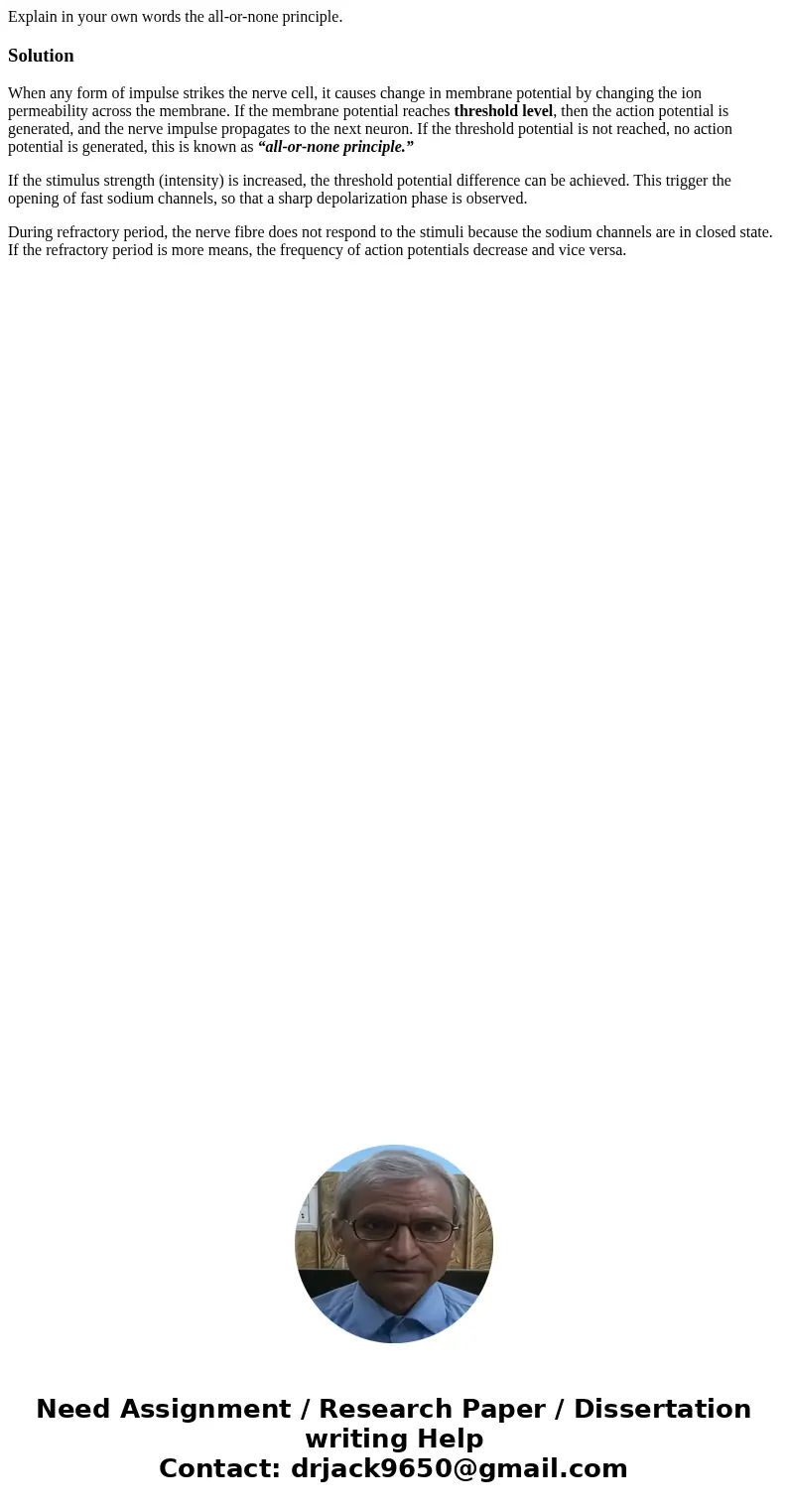Explain in your own words the allornone principle SolutionWh
Solution
When any form of impulse strikes the nerve cell, it causes change in membrane potential by changing the ion permeability across the membrane. If the membrane potential reaches threshold level, then the action potential is generated, and the nerve impulse propagates to the next neuron. If the threshold potential is not reached, no action potential is generated, this is known as “all-or-none principle.”
If the stimulus strength (intensity) is increased, the threshold potential difference can be achieved. This trigger the opening of fast sodium channels, so that a sharp depolarization phase is observed.
During refractory period, the nerve fibre does not respond to the stimuli because the sodium channels are in closed state. If the refractory period is more means, the frequency of action potentials decrease and vice versa.

 Homework Sourse
Homework Sourse